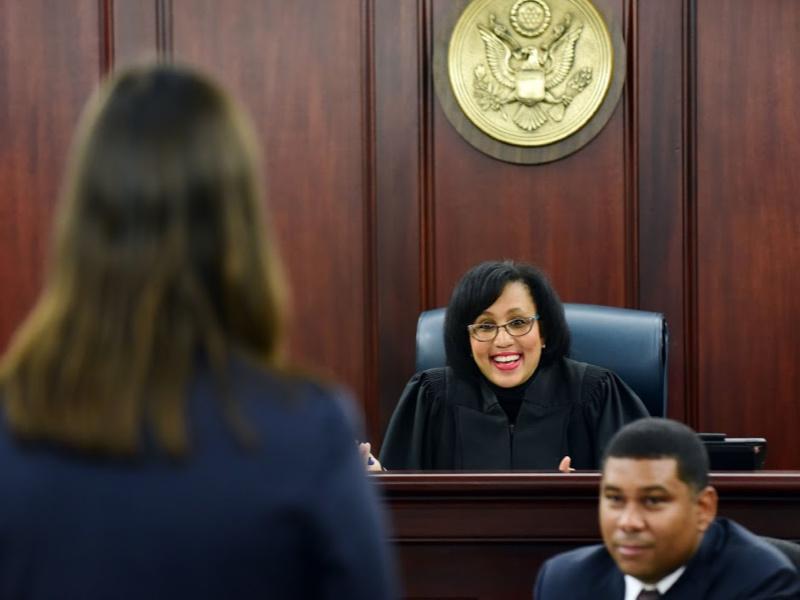Karen Wells Roby (L'87): Judging in the Midst of a Pandemic
Like everyone else, I never thought that I would not be able to go to the courthouse to conduct my daily conferences, hearings, trials and work on opinions. Well, life has changed considerably since late February, when Corona made its way to the U.S.
While federal judges have always had equipment at their homes to assist in the management of their dockets, that equipment is now being used to manage the day-to-day work of the court. So how has my life changed?
Presently, I am conducting pretrial-criminal matters by video with the consent of the defendant. The defense and prosecution attorneys appear by video. The defendant also is viewed by video feed while sitting either in the jail or U.S. Marshal holding cell. Additionally, any witness that the lawyers desire to call also appears on the video feed.
Interestingly, my courtroom is made visually available and proceedings are recorded on the FTR system by court staff or transcribed by a court reporter. On the occasion when I need a translator, the translator appears in the courtroom and translates not only the proceeding but also documents that may be in English.
In addition to handling video criminal pretrial matters, I still conduct settlement conferences, which is one of the lifeblood proceedings of the system. They usually start with a joint telephone conference with all the lawyers and then I secure their cell phone numbers to pass the offers and counteroffers until a resolution is reached. Just as when I was in my chambers, I confirm the terms of the agreement on the record with a court reporter and the parties participating in a final telephone conference. Finally, a minute entry is prepared and issued to the lawyers electronically and recorded on the court’s record.
Hearings are conducted on video platform that has end-to-end encryption and which is authorized for use by all federal courts. Just as when we were physically in court, the lawyers’ arguments are transcribed and my ruling placed on the record and then in writing.
Daily video calls are made to my staff to get updates and discuss their daily plan of action. The call is also used to check on how they are doing and discuss the personal challenges with remote working and staying home so much. I have not had to grapple with having a jury trial yet and really have no idea how that could be accomplished under the current circumstances.
One thing is for sure, you have to be flexible and adaptable to change. For me, short of being home so much, it was not uncommon for me to issue orders from home.
I am grateful that at least in the federal system we have been issuing orders electronically for more than 10 years, so doing it now under these circumstances doesn’t feel so new. I realize that my state court colleagues' challenges are probably greater and I wish them well in navigating this new territory we are forced to live in.
Never forget that the only thing that is constant is change. Be Well!

